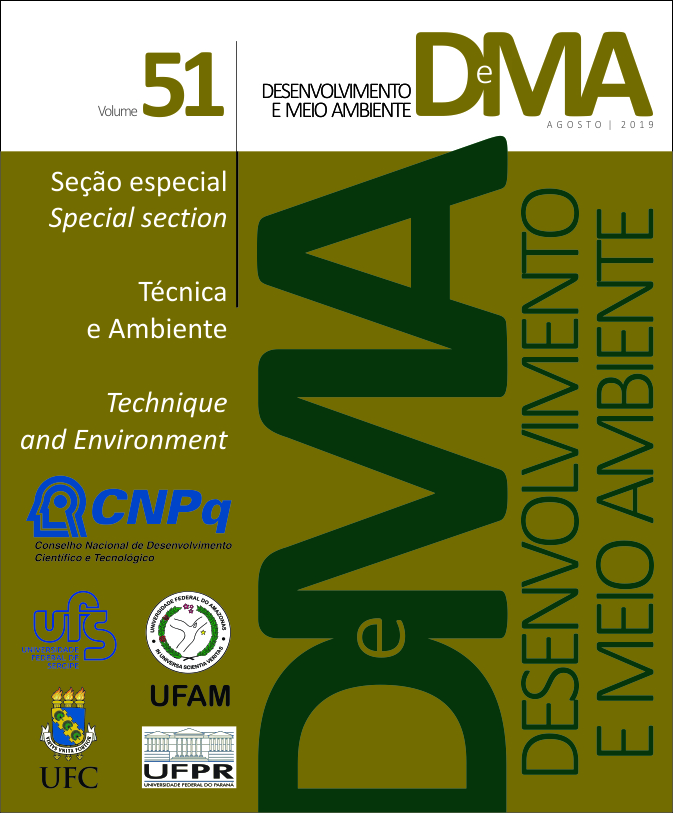The impact of decentralization policies: the environmental performance applied to municipalities of the Amazon
DOI:
https://doi.org/10.5380/dma.v51i0.61705Palavras-chave:
Amazon, indicators, municipal environmental management, Pará, BrazilResumo
The historical environmental problems in the Amazon urge greater governance and transparency at the municipal level. The decentralizing of municipal environmental management (MEM) is an ongoing process in the Brazilian Amazonbut a monitoring mechanism is missing. We used an index (iMEM) derived by factorial analysis to rank the environmental management performance of 143 municipalities in Pará state at the beginning of the decentralizing process (2009) and six years after that (2015). Multiple regression analysis indicated that iMEM was positively affected by factors such as population, communication and protected areas in the municipalities and negatively affected by rural credit, GDP and property registration program. Decentralizing measures seem to be more politically than environmentally effective since only 21.7% of 143 municipalities were classified as having good environmental management in 2015. Pará’s poorly performing municipalities in both periods illustrate regions where unsustainable and misguided national policies were fostered in the 70s. The monitoring of the decentralization progress and synergic policies is crucial for the effectiveness of the policy in the Amazon.
Downloads
Publicado
Como Citar
Edição
Seção
Licença
Os Direitos Autorais sobre trabalhos publicados nesta revista são do autor, com direitos de primeira publicação para a revista. O conteúdo dos trabalhos publicados é de inteira responsabilidade dos autores. A DMA é um periódico de acesso aberto (open access), e adota a licença Creative Commons Atribuição 4.0 Não Adaptada (CC-BY), desde janeiro de 2023. Portanto, ao serem publicados por esta Revista, os artigos são de livre uso para compartilhar (copiar e redistribuir o material em qualquer suporte ou formato para qualquer fim, mesmo que comercial) e adaptar (remixar, transformar, e criar a partir do material para qualquer fim, mesmo que comercial). É preciso dar o crédito apropriado, prover um link para a licença e indicar se mudanças foram feitas.
Os conteúdos publicados pela DMA do v. 53 de 2020 ao v. 60 de 2022 são protegidos pela licença Creative Commons Atribuição – Não Comercial – Sem Derivações 4.0 Internacional.
A DMA é uma revista de acesso aberto desde a sua criação, entretanto, do v.1 de 2000 ao v. 52 de 2019, o periódico não adotava uma licença Creative Commons e, portanto, o tipo de licença não é indicado na página inicial dos artigos.




